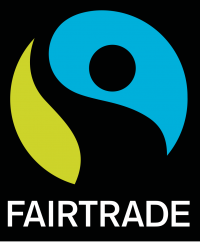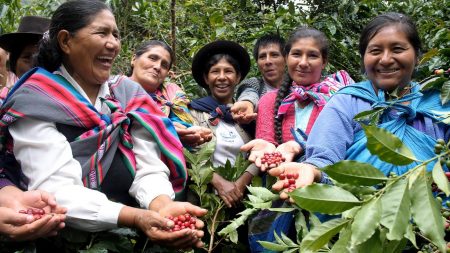Fair Trade
Carleton University is a Fairtrade Designated Campus. This designation is bestowed to campuses that have committed to advance the impact of fair trade through education and product availability. As a Fairtrade Designated Campus, Carleton Dining Services actively works to incorporate Fairtrade Certified ingredients into its recipes. Carleton, along with dozens of universities and colleges across the country, participates in the annual Fairtrade Month. The month-long event celebrates Canada’s fairtrade movement and strengthens a culture of socially responsible consumption on campus.

Fairtrade Canada, which follows the same guidelines as Fairtrade International, has a rigorous series of social, economic, and environmental standards curated for specific product industries and geographic regions. There are four major features to Fairtrade standards:
- Minimum Price
The price of goods, especially raw materials, can fluctuate drastically on the global market. A drought or extra rainy growing season can dramatically affect a product’s supply, and consequently its price. The Fairtrade Minimum Price is a form of protection for farmers against volatile prices. The Minimum Price is a guaranteed minimum price farmers can expect to be paid for their goods, regardless of how much lower the market price may be. If the market price is higher than the Fairtrade Minimum Price, farmers receive the market price. This protection ensures farmers have a secure and stable income, allowing them to plan for their future.
- Worker Rights
Fairtrade operations are at least 50% owned by the producers through some form of co-operative. Each farmer has an equal voice, allowing them to be involved in the decision-making process. This means farmers have the power to influence the use of resources and the setting of prices.
- Sustainable Practices
The Minimum Price is set at a level that provides farmers with the funds to operate in an ecologically and socially sustainable manner. Labour standards requiring safe and equitable work environments are strictly enforced. Environmental standards promoting sustainable management of natural resources are central to Fairtrade to ensure future generations can utilize the same resources with similar capacity.

- Fairtrade Premium
One of the most unique components of Fairtrade business agreements is the Fairtrade Premium. Farmer co-operatives are paid a sum of money known as a Fairtrade Premium that goes into a communal fund. This fund can be used as members of the co-operative see fit. The Fairtrade premium funds may be reinvested into the product’s operations, such as a new irrigation system. Members of the co-operative may also decide to invest the Fairtrade premium funds into their community, such as building a new school or medical center.
- Identifying and Incorporating Fairtrade Products into Your Purchases
The term “fair trade” is often used to describe a good that was produced in a manner characterized as less exploitative than conventional practices. However, as the use of eco-labels to drive sales rises, it can be difficult to verify if the “fair trade” business model used to describe the product had a significant social, economic, or environmental impact. Labelling is an important feature of fairtrade operations. The certification labels associated with a “fair trade” product dictate the integrity of the business practices behind the product’s creation. Fairtrade’s enforcement of standards combined with the organization’s continual impact research allows customers to purchase Fairtrade certified products with confidence. As a Fairtrade Certified Campus, Carleton works to educate students about identifying Fairtrade Certified brands and the impact of investing in these products.
